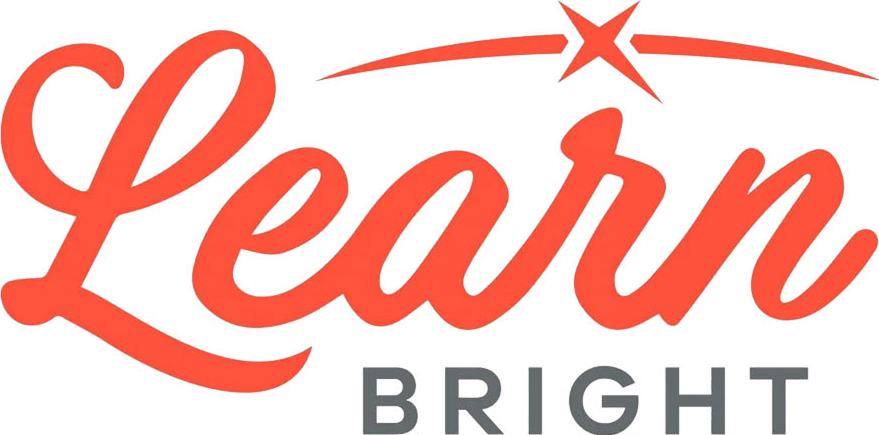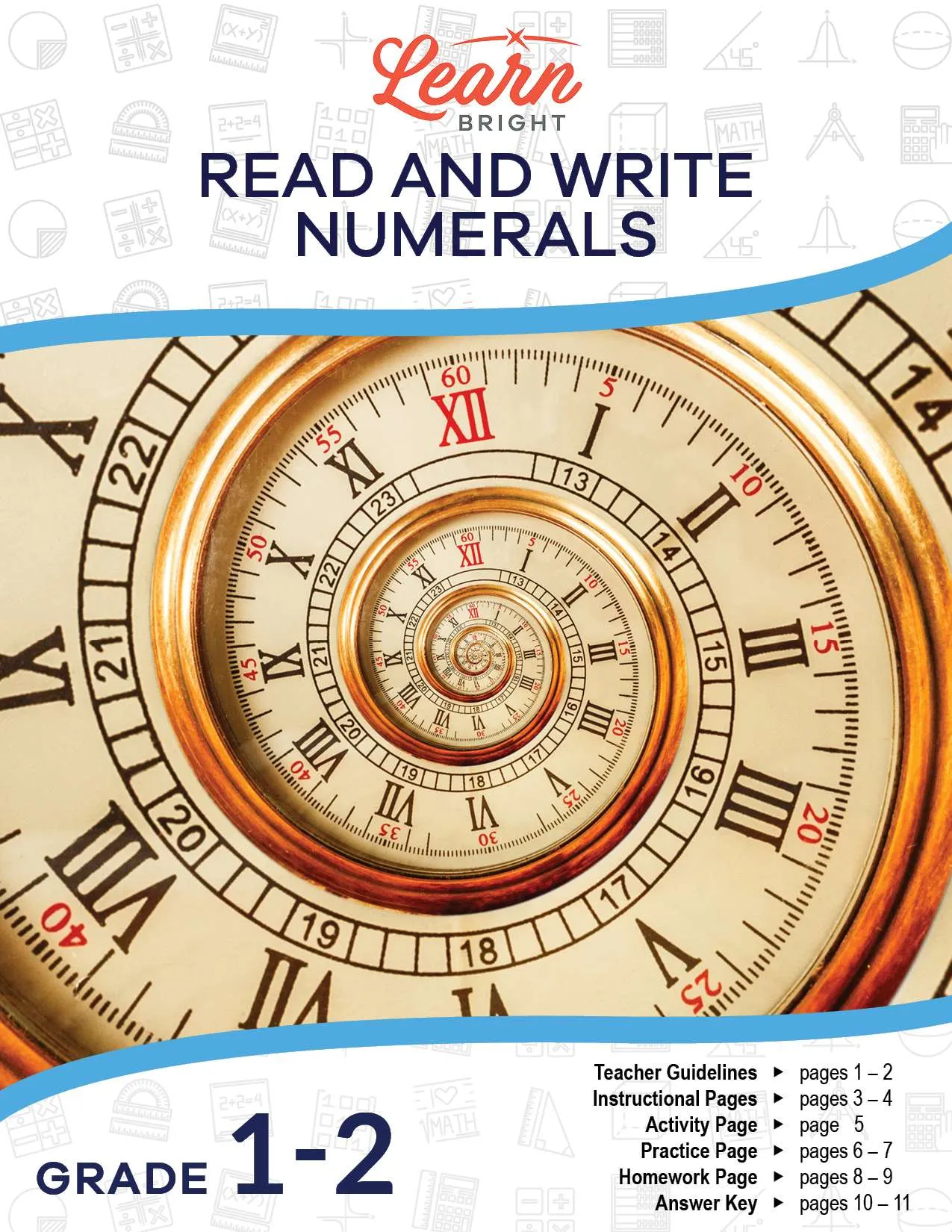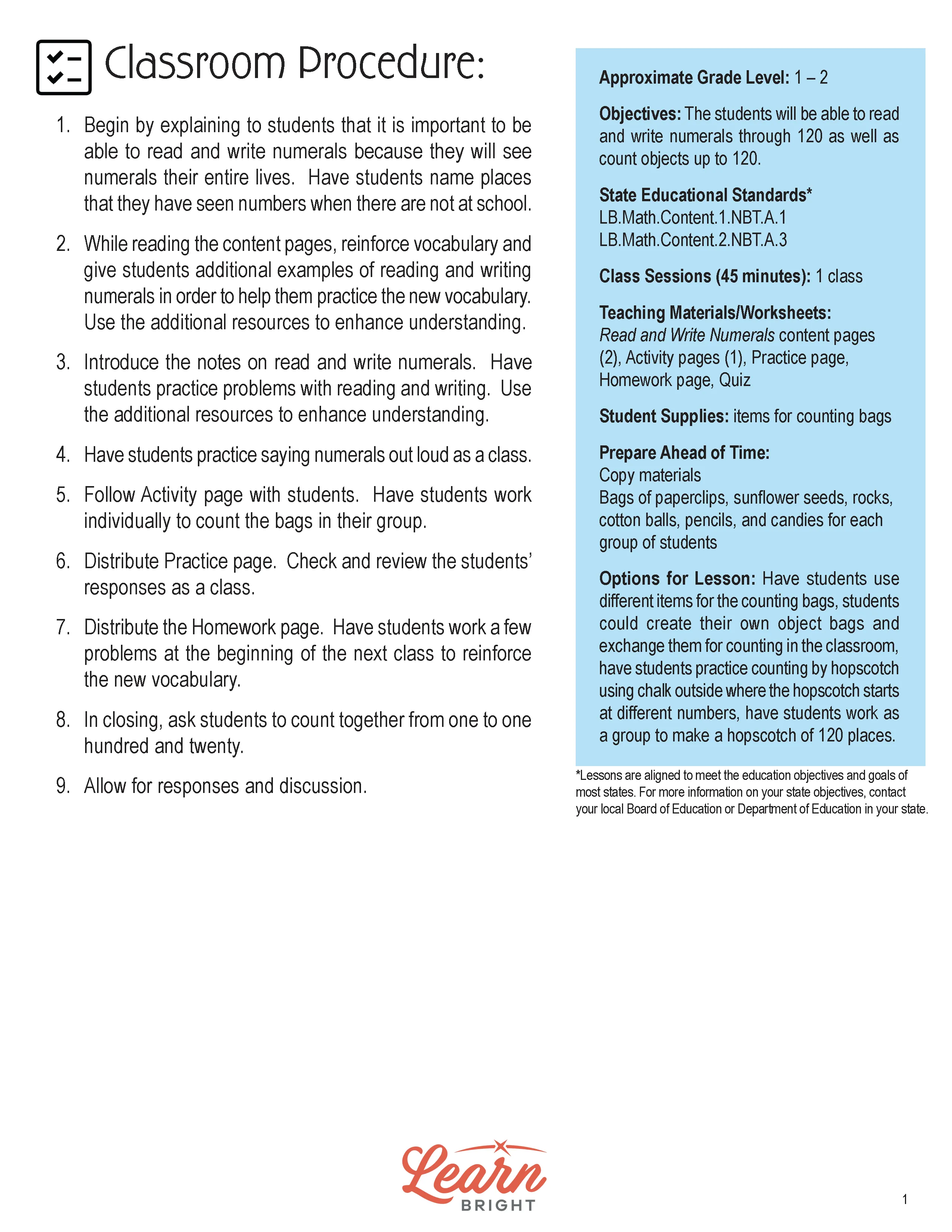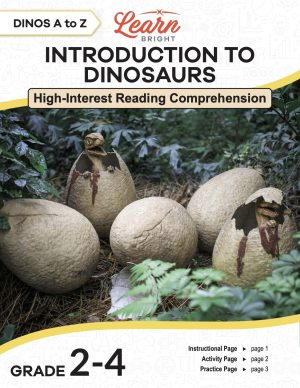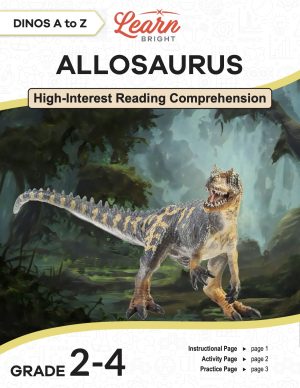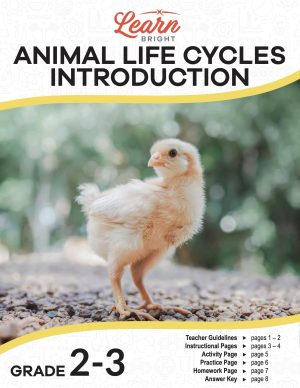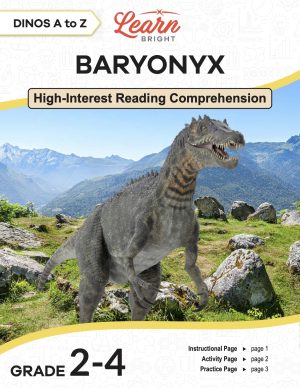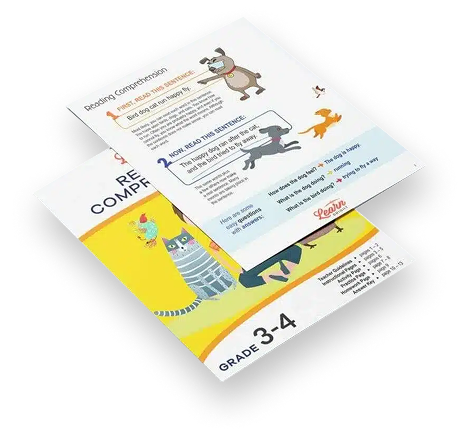Description
What our Read and Write Numerals lesson plan includes
Lesson Objectives and Overview: Read and Write Numerals introduces young students to how to read and write numerals through 120. At the end of the lesson, students will be able to read and write numerals through 120 as well as count objects up to 120. This lesson is for students in 1st grade and 2nd grade.
Classroom Procedure
Every lesson plan provides you with a classroom procedure page that outlines a step-by-step guide to follow. You do not have to follow the guide exactly. The guide helps you organize the lesson and details when to hand out worksheets. It also lists information in the blue box that you might find useful. You will find the lesson objectives, state standards, and number of class sessions the lesson should take to complete in this area. In addition, it describes the supplies you will need as well as what and how you need to prepare beforehand.
Options for Lesson
Included with this lesson is an “Options for Lesson” section that lists a number of suggestions for activities to add to the lesson or substitutions for the ones already in the lesson. One optional adjustment to the lesson activity is to have your students use different items for the counting bags. You could also have your students create their own object bags and exchange them for counting in the classroom. For an additional activity, you could have your students practice counting by hopscotch using chalk outside where the hopscotch starts at different numbers. Finally, you could have your students work as a group to make a hopscotch of 120 places.
Teacher Notes
The teacher notes page includes lines that you can use to add your own notes as you’re preparing for this lesson.
READ AND WRITE NUMERALS LESSON PLAN CONTENT PAGES
Read Numerals
The Read and Write Numerals lesson plan includes two content pages. Learning how to read numbers in word form is very important. The lesson begins with tables that shows the numbers 1 to 20, and 10 through 100 by tens, in both word form and numeric form.
When reading a numeral, you read from left to right. For example, when you look at the number 84, you know that it is 80 + 4 in expanded form and that you read it out loud as eighty-four. The tens place has an 8 and the units (or ones) place has a 4.
When you look at the number 37, you know that it is also 30 + 7 in expanded form and that you read it out loud as thirty-seven. The tens place has a 3 and the units (or ones) place has a 7.
Write Numerals
All numerals are written using the same ten digits: 0, 1, 2, 3, 4, 5, 6, 7, 8, and 9. But how do you write a numeral using digits?
Let’s look at some examples. The numeral 93 is made up of the digits 9 and 3. The 9 represents ninety because it is in the tens place and the 3 represents three because it is in the ones or units place.
The numeral 28 is made up of the digits 2 and 8. The 2 represents twenty because it is in the tens place and the 8 represents eight because it is in the ones or units place.
You can make every number in the world with the same 10 digits! You can also represent groups of objects using numerals. For example, the lesson shows a picture of a group of dogs. First, you need to count the dogs. In this example, there are 23 dogs. The numeral 23 is made up of the digits 2 and 3. The 2 represents twenty because it is in the tens place and the 3 represents three because it is in the ones or units place.
Reading and writing numbers may seem complicated, but you’ll find it easier and easier as you practice. Try practicing reading and writing the numbers that you see all around you each day. Next time you see a number at the grocery store or the park, say it out loud!
READ AND WRITE NUMERALS LESSON PLAN WORKSHEETS
The Read and Write Numerals lesson plan includes four worksheets: an activity worksheet, a practice worksheet, a homework assignment, and a quiz. You can refer to the guide on the classroom procedure page to determine when to hand out each worksheet.
COUNTING OBJECTS ACTIVITY WORKSHEET
The activity worksheet asks students to first take a bag from the table. Each bag contains a different number of a different object (for example, one bag contains a random number of paperclips and another contains a random number of sunflower seeds). They will count the objects inside each bag, writing the numeral for each in both words and digits.
WRITTEN FORM PRACTICE WORKSHEET
For the practice worksheet, students will first write the number for the written form of each number. Next, they will fill in the numbers before and after the numbers listed to create a pattern. Finally, they will write the number of objects in each group of objects shown on the worksheet.
READ AND WRITE NUMERALS HOMEWORK ASSIGNMENT
The homework assignment first asks students to write the number for the written form of each number. They will then circle the correct option for how to write different numerals in digits.
QUIZ
This lesson also includes a quiz that you can use to test students’ understanding of the lesson material. For the quiz, students will fill in a chart with the corresponding number for each word listed.
Worksheet Answer Keys
This lesson plan includes answer keys for the practice worksheet, the homework assignment, and the quiz. If you choose to administer the lesson pages to your students via PDF, you will need to save a new file that omits these pages. Otherwise, you can simply print out the applicable pages and keep these as reference for yourself when grading assignments.
